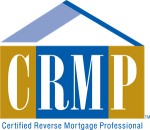How Do You Qualify For a Reverse Mortgage Loan?
My goal is that you become fully informed of this versatile mortgage loan and make the appropriate decision for you and your family given your unique situation.
It can be scary making a major decision about one of your biggest investments, the place that means the most to you. Deciding whether a reverse mortgage loan is right for you often requires education and expert advice. I hope the following information is beneficial as you explore whether a reverse mortgage loan is right for you.
A reverse mortgage loan is a unique loan that allows homeowner(s) 62 years of age and older to draw on the value of their home, which is paid to the homeowner(s) in a variety of payout options or used as a line of credit. One of the unique features of a reverse mortgage loan is that it does not require repayment until the homeowner(s) no longer reside in the residence, the last surviving borrower passes away, or does not comply with the loan obligations. An example of reverse mortgages or HECM guidelines / obligations are paying property taxes and insurance and maintaining the property to FHA guidelines (if the reverse mortgage loan is FHA's HECM loan).

Types of Reverse Mortgage Loans
There are different types of reverse mortgage loans. The two most popular are the HECM loan (Home Equity Conversion Mortgage, insured by the FHA) and jumbo or proprietary reverse mortgage loans¹ for high value homes.
I am a reverse mortgage loan specialist and am here to assist you as you explore your options and whether a reverse mortgage loan is right for you. My goal is that as you learn more about the reverse mortgage loan you have all the information you need to make the best decision for you and your family. I aim to provide world class service from start to finish.
Qualifications for Reverse Mortgage Loans
To qualify for a reverse mortgage loan there are some basic requirements, such as:
- At least one borrower (that will be on title) must be at least 62 years old (unless in the state of Texas, both borrowers must be 62 years old at the time the loan closes).
- The home must be maintained as the primary residence of the borrower/s for at least 6 months out of every year.
- There must be sufficient equity in the home. While there is no specific amount of equity required - as a general rule of thumb - you'd want at least 50% equity in your home since you will need to pay off your existing mortgage with the loan proceeds. The more equity you have the more loan proceeds you will have access to.
- A HECM’s (Home Equity Conversion Mortgage) underwriting standards are unique when compared to traditional mortgage loans. All applicants are subject to a financial assessment to determine their financial capacity and willingness to adhere to the loan obligations, such as paying taxes and insurance.
Keep in mind, you do not need to pay off your home to qualify for a reverse mortgage loan.
The cash you can potentially receive is based on the age of the youngest borrower, the current expected interest rate, the mortgage option selected, and the appraised value of the home. For instance, an older individual with a higher value home typically will be eligible for more than a younger person with the same home value at the same expected interest rate. How much money you can take in the first year is limited. For more information on distribution limits visit my reverse mortgage loan FAQs page.
The Key Features of Reverse Mortgage Loans
Deciding whether a reverse mortgage loan is right for you can be a daunting task, but I am here to hopefully alleviate some confusion and provide you with all the information you need to make the right decision for you and your family.
Some of the key features of the reverse mortgage loan are as follows:
- While you will still need to pay property taxes and insurance and maintain the property, no monthly mortgage payments are required.
- There are multiple options to convert your home's equity to support your financial goals, such as, receiving monthly payments, receiving a lump sum, or growing a line of credit over time.
- Proceeds you receive from a reverse mortgage loan are typically tax free, however, you will need to consult your tax advisor for tax advice.
- Borrower protection to help reduce the risk of foreclosure. An example of this is a guideline that limits the amount of equity the borrower can access during the first year of the loan. Also, the borrower/s must demonstrate that they're able to pay property taxes and insurance and maintain the home during the time they have the loan. Furthermore, if a non-borrowing spouse under the age of 62 loses their borrowing spouse or their spouse permanently leaves the home, they will be allowed to remain in the home as long as they comply with the loan terms.
- If the borrower/s choose to access their equity via a line of credit, interest only accrues on funds that are used. Funds that are not used will increase over time at the same rate of your loan. This feature allows for growing the amount of cash you have access to should you need or want to access it later in retirement.
- The FHA HECM Loan is a non-recourse loan. This means that if your home sells for less than the loan balance, your heirs are not liable for the debt. Only the funds received from the sale of the home can be used to repay the loan.

At the time of application, your home mortgage balance does not have to be paid off to qualify. However, the reverse mortgage loan proceeds you receive must be used to pay off the existing mortgage or liens (if there is a mortgage balance owing). You will continue to hold title to your home subject to the mortgage securing the reverse mortgage loan.
Reverse Mortgage Loan Home Eligibility
Homes that are eligible for a reverse mortgage loan include single-family homes, detached homes, townhouses, and two-to-four unit properties that are owner-occupied. Condominiums must be FHA-approved for the HECM loan and some manufactured homes are also eligible. Contact your Reverse Mortgage Loan Originator for more details on manufactured home eligibility.
Will You Have To Repay The Lender if You Outlive The Loan?
If you outlive the loan, you will not have to repay the lender if you have a HECM loan. As long as one of the borrowers on the loan note (or original non-borrowing spouse) lives in the home, continues to pay the taxes and insurance and maintains the home in good condition and complies with the loan terms, you will not need to repay the loan. Once the last surviving borrower passes away (and any non-borrowing spouse), the home is sold or the obligations of the loan are not met, the loan must be repaid.
How Will This Loan Affect My Estate And How Much Will Be Left To My Heirs?
If a HECM, once the last surviving borrower dies, sells your home, or no longer resides there as the primary residence, you or your estate is responsible for the repayment of the money you received from the reverse mortgage loan, plus interest and other fees. Any remaining equity belongs to either you or your heirs. A “non-recourse” clause prevents either you or your estate from being responsible for more than the value of your home when the loan is repaid. If the ending loan balance exceeds the home's value, the estate (heirs) can sign a deed in lieu of foreclosure releasing the property or, pay 95% of the home's appraised value, less customary closing costs & real estate commissions.
Should I Use An Estate Planning Service To Find A Reverse Mortgage Loan?
HUD advises against using any service that charges a fee (except required HECM counseling) or any service that requests a lender referral fee to obtain a reverse mortgage loan. HUD provides this information free of charge and can direct you to HUD-approved housing agencies that offer approved reverse mortgage loan counseling or additional services that are free or have a minimal cost.
There is typically a reverse mortgage loan (HECM) counseling fee that ranges from $125 - $150. If the borrower cannot afford this fee, some counseling agencies will waive the fee for qualified applicants. You can find a HUD-approved housing counseling agency near you by calling 1-800-569-4287 toll free.
Options For Receiving Loan Proceeds
Adjustable interest rate reverse mortgage loan payments can be received in one of five ways:
- Tenure: equal monthly payments
- Term: equal monthly payments for a fixed period of months as decided by the borrower
- Line of Credit: payments made in installments or at various times and in amounts dictated by the borrower(s)
- Modified Tenure: monthly payments with a line of credit
- Modified Term: monthly payments for a fixed period of months with a line of credit²
What Are The Differences Between A Home Equity Line of Credit And A Reverse Mortgage Loan?
Reverse mortgage loans are unique because they allow the borrower to receive loan proceeds that do not require immediate repayment as long as you remain in your home as your primary residence, do not sell your home, at least one borrower lives in the home, you meet the basic income and credit standards, and follow loan guidelines.
On the other hand, obtaining a home equity loan (or home equity line of credit or second mortgage) requires that you have sufficient income to cover the debt- plus, you must continue to make monthly principal and interest mortgage payments.

With a reverse mortgage loan, you must meet basic income and credit guidelines but you do not make monthly principal and interest payments. Keep in mind you must continue to pay all property related fees, taxes and homeowner’s insurance and maintain the property in good condition.
Reverse Mortgage Loans and Home Equity Conversion Mortgages
Necessity is the mother of invention and the first reverse mortgage loan is no exception. Today, many use the terms reverse mortgage loan and HECM or Home Equity Conversion Mortgage interchangeably. But are they the same? Not necessarily.
The first reverse mortgage loan was originated in 1961 by Deering Savings & Loan. Nelson Haynes who worked for the lender learned his former high school football coach had passed away and his widow was struggling to find a way to keep the home. The widow, Nellie Young, took the very first reverse mortgage loan and became part of mortgage history in the process.
In the ensuing years, interest grew in the concept of a ‘reverse mortgage’ loan which allowed the homeowner to defer payments until a later time -usually upon their death. Private lenders stepped into this niche market, however some of these loans relied upon ‘equity-sharing’ schemes in addition to accrued interest on the money borrowed.
Recognizing the increasing need for older homeowners to secure their retirement with home equity Congress began exploring the concept of reverse mortgage loans. In 1969 the first hearing was held in the Senate Committee on Aging to discuss the government’s possible role in such a program.
It wasn’t until nearly two decades later that the Home Equity Conversion Mortgage was formalized by Congress in 1987 as part of an insurance bill. It began as a pilot program for the nation’s first federally-insured reverse mortgage loan then later became a permanent fixture in mortgage lending. In formalizing a government-insured and supervised loan numerous consumer protections were included.
Today, many refer to the Home Equity Conversion Mortgage or HECM as a reverse mortgage loan - a name that stuck, since payments are ‘reversed’ with the borrower not being required to make payments but instead the lender pays the homeowner.³ However, not all reverse mortgage loans are created equal. HECMs are federally-insured and have unique eligibility requirements and guarantees. Private reverse mortgage loans¹ offer access to one’s home equity with no required monthly payments as well, albeit with different terms and conditions.*
The good news is that while only the HECM is insured by the Federal Housing Administration (FHA) and supervised by the Department of Housing and Urban Development (HUD), private reverse mortgage loans are closely monitored by regulators. It is recommended that homeowners thoroughly research their options on which loan may best suit their needs. Costs, features, eligibility rules, insurance, and interest rates should be considered.
Whether it’s a HECM or a reverse mortgage loan, both reverse the typical mortgage and provide eligible homeowners a flexible means to tap into their home’s value.
History of Reverse Mortgage Loans
The origins and history of reverse mortgage loans reveals a loan product that has evolved dramatically over the last 40 years.
The first reverse mortgage loan was written in 1961 by Nelson Haynes of Deering Savings & Loan (Portland, Maine) to Nellie Young, the widow of his high school football coach helping her to stay in her home despite the loss of her husband’s income.
The need for reverse mortgage loans was further developed in the 1970’s with several private banks offering reverse-mortgage-style loans. These programs gave seniors money from their home but did not afford the protections of today since no FHA insurance had been put in place. Since 1989 reverse mortgage loans have grown in popularity.
In the early 1980’s the U.S. Senate Special Committee on Aging issued a report stating the need for a standardized reverse mortgage loan program. Other committees throughout the mid 80’s cited the need for FHA insurance and uniform lending practices. In late 1987 Congress passed the FHA insurance bill that would insure reverse mortgage loans. On February 5, 1988, President Ronald Reagan signed the FHA Reverse Mortgage loan bill into law. In 1989 the first FHA-insured HECM was made to Marjorie Mason of Fairway, Kansas by the James B Nutter Co.
Since 1989 reverse mortgage loans have grown in popularity, especially in the mid to late 1990’s. Despite economic upheaval and forward mortgage lending issues, reverse mortgage loans have continued to grow as a safe, government-insured loan allowing seniors to access a portion of the value of their homes while not having to make a monthly mortgage payment.³
¹For these loan programs I am a Mortgage Broker only, not a mortgage lender or mortgage correspondent lender. I will arrange loans with third-party providers but do not make loans for these programs. I will not make mortgage loan commitments or fund mortgage loans under these programs.
²HECM fixed interest rate mortgages are limited to the Single Disbursement Lump Sum payment option, which is one full draw at loan closing and no future draws. Adjustable interest rate mortgages provide for five, flexible payment options, and allows for future draws. Initial distribution caps will apply.
³There are some circumstances that will cause the loan to mature and the balance to become due and payable. The borrower is still responsible for paying property taxes, homeowner’s insurance and maintaining the property to HUD standards. Failure to do so could make the loan due and payable. Credit is subject to age, income standards, credit history, and property qualifications. Program rates, fees, terms, and conditions are not available in all states and subject to change.
*Borrowers must continue to pay property taxes, homeowner’s insurance, and home maintenance costs.
This advertisement does not constitute financial advice. Please consult a financial advisor regarding your specific situation. Borrowers should seek professional tax advice regarding reverse mortgage loan proceeds.






